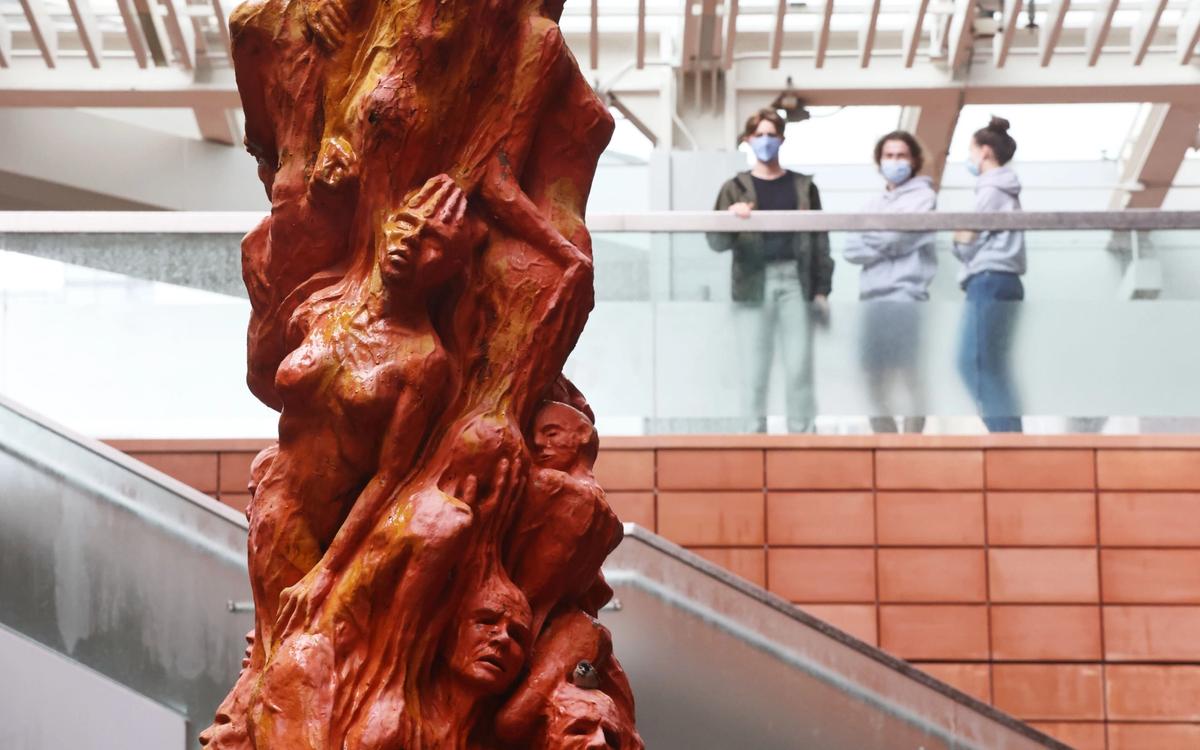As I write these words, I am listening to a recording of what Joseph Haydn’s most famous biographer called his single greatest composition; one of the composer’s last masses. Haydn wrote it in 1798, at a time when Napoleon menaced the composer’s own country, Austria. Not surprisingly, Haydn called it Missa in Angustiis, a mass for troubled times (or a mass in a time of peril as it is sometimes translated).
A group of friends organised a special performance of this mass for me on one of my last Sundays in Hong Kong as Britain’s last governor there. We were all, of course, nervous about the future in 1997. Would China’s promises hold, that after it resumed sovereignty over Hong Kong the city would retain its distinct way of life under the rule of law and with a high degree of autonomy for 50 years? For some years afterwards it seemed that we could be relatively optimistic. But since Xi Jinping became China’s would-be lifetime dictator in 2012, the sense of peril has returned.
Back in 1997, it was the recent murders by the soldiers of the Beijing regime of Chinese citizens (many of them students) in Tiananmen Square that had raised fears and doubts about the future. Stamping out recollections of the Tiananmen murders is part of the assault today by Beijing on Hong Kong’s freedoms, including the liberties that should guarantee freedom of speech, freedom of artistic expression and an education free from propaganda.
Scared stiff of liberties
But for the Beijing tyranny to own the past, or at least its version of it, gives the Communist party—it believes—control over the present and future. So the fact of the 1989 massacre has to be denied, erased from history, just like the other bloody brutalities of China’s communist past which led to so many refugees fleeing the Chinese mainland for a safe haven in Hong Kong.
Xi Jinping’s nasty regime, with which—for the time being—we have to share this planet, is scared stiff of the liberties that used to be on such notable and vibrant display in Hong Kong. Beijing regarded them as an existential threat to communist control over China. The city was not only a great free trade, financial and economic hub in Asia, but also one of the region’s leading artistic, cultural and educational centres. This status has inevitably been corroded as Beijing and its quisling apparatchiks in Hong Kong have set about demolishing the freedoms that made the city so special and whose continuance had been guaranteed in an international treaty that China has broken as it has broken so many others.
It will surprise few, but shock many, that one of the most notable attacks on the arts was the recent removal in secret, in the dead of night, of a sculpture by a Danish artist that had stood in the campus of Hong Kong University. It was called The Pillar of Shame and memorialised those murdered in Tiananmen Square. Other similar memorials have been destroyed or removed, and the museum that recalled the whole awful story has been raided and its main supporters arrested. The annual candlelit vigil to remember those gunned down in 1989 has been stopped.
Books have been removed from library shelves. Independent bookshops have left the city. Publishers have been abducted and prosecuted. Film censorship has been introduced to prevent the making or screening of films regarded as breaking the catch-all national security law.
The Hong Kong Arts Centre recently cancelled a performance by a well-known singer who happened to be a democracy supporter. The new Modern art museum, M+, has been warned not to display any work that seems to criticise the communist tyranny: a pro-Beijing lawmaker specifically targeted a photograph of Tiananmen Square by the Chinese dissident artist Ai Weiwei in the museum’s collection for criticism (although it was not displayed) and the image has since disappeared from the museum’s online listing.
Alongside government warnings and prosecutions, the artistic community—like those who work and study at Hong Kong’s universities—has to watch out for attacks from the United Front Communist Party sympathisers, dubbed by Steve Vines, the distinguished Hong Kong journalist (now in exile), as “the white terror”. So while it is true that you can still open a book in Hong Kong, still lift a paintbrush, still play scales on the piano, the Communist Party decides the strict limits within which you can perform or appreciate these aspects of culture and education. Liberties of every sort have always been choked off by tyrants.
I guess those pro-Beijing Hong Kong quislings who know something about the arts might have doubts about listening to a mass described as having been written in troubled times. Lovers of freedom might take comfort from the fact that just before the first performance of that mass, Napoleon’s fleet had been defeated by Lord Nelson’s British vessels in the Battle of the Nile. The peril was at least for the time being sent packing. We must hope that at sometime we can say that Hong Kong’s freedom loving citizens no longer live in a time of peril.
• Lord Patten is a British politician and was the 28th and last governor of Hong Kong. He is also chancellor of the University of Oxford


